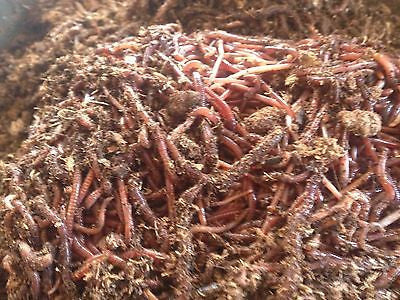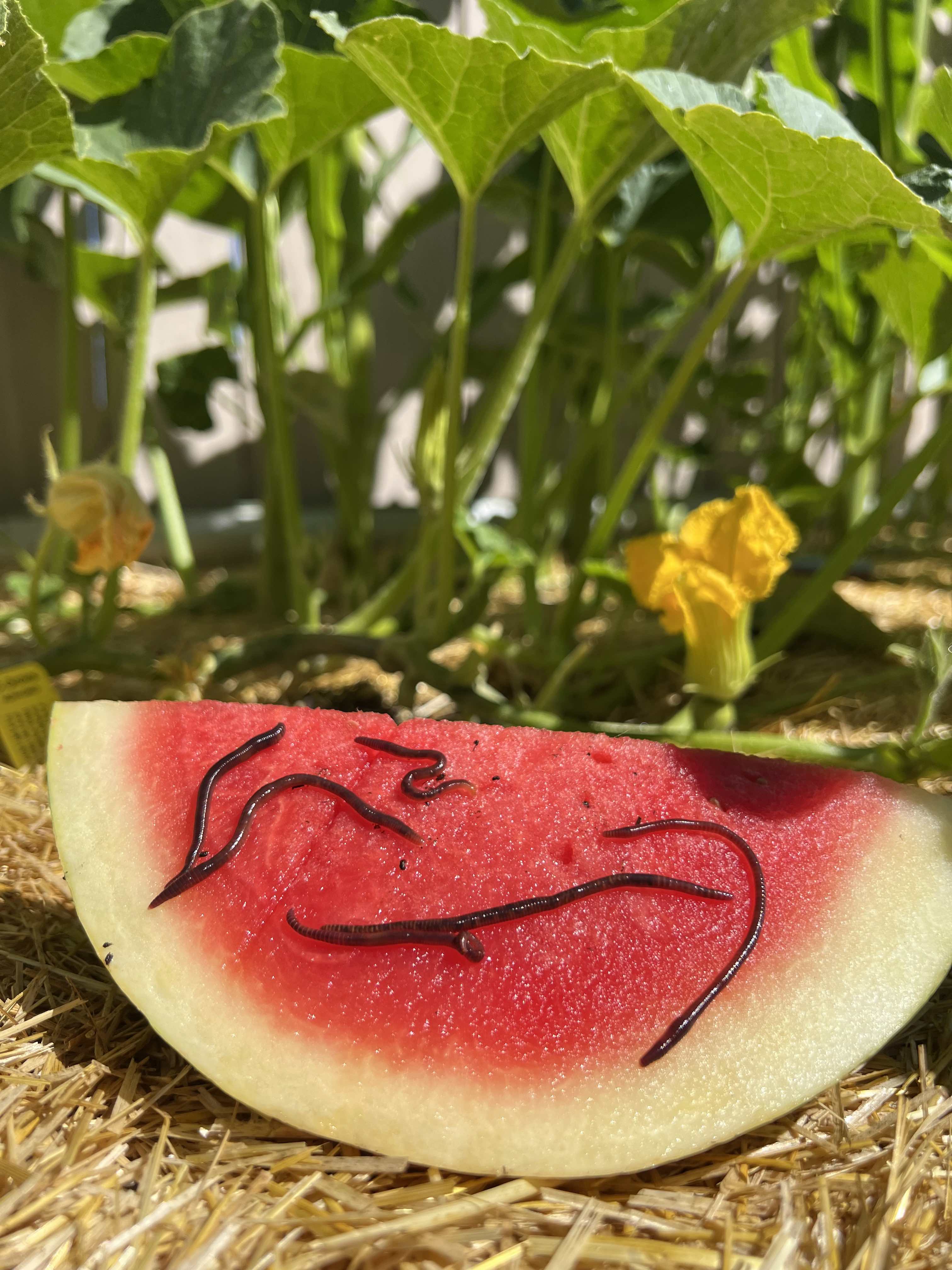Red Wiggler Worms - Perfect for Vermicomposting and Soil Enrichment
Red Wiggler Worms - Perfect for Vermicomposting and Soil Enrichment
Blog Article
Red Wiggler Worms Demystified: Opening the Tricks of Vermiculture for Greener Living and Nutrient-Rich Dirt
In the realm of lasting practices for enriching dirt top quality and promoting eco-conscious living, red wiggler worms play a pivotal yet usually forgotten role. Red Wiggler Worms. Comprehending the details of caring for these worms, maximizing their atmosphere, and harnessing their castings can lead to a greener way of living and much healthier soil for plants to flourish.
The Duty of Red Wiggler Worms
Red Wiggler worms play an important role in composting systems by effectively breaking down raw material right into nutrient-rich castings. These starved eaters eat a range of organic products, such as kitchen area scraps, lawn waste, and paper products. As they feed, the worms' digestion procedures damage down the organic matter right into a penalty, dark, and nutrient-dense product understood as worm castings or vermicompost.
The spreadings produced by Red Wiggler worms are very beneficial for soil health and wellness and plant growth. They are abundant in crucial nutrients like potassium, phosphorus, and nitrogen, which are essential for sustaining healthy plant advancement. In addition, worm spreadings include useful microbes and enzymes that aid improve dirt structure, rise water retention, and boost nutrient uptake by plants.
Benefits of Vermicomposting

Moreover, vermicompost, the nutrient-rich output of vermicomposting, functions as a superb organic plant food and soil conditioner. It boosts soil framework, enhances dirt oygenation, and increases soil moisture retention. These homes add to much healthier plants with more powerful root systems and better resistance to illness and bugs. Vermicompost additionally enhances the soil with essential nutrients like potassium, nitrogen, and phosphorus, promoting plant growth and overall dirt fertility.
Additionally, vermicomposting assistances lasting horticulture methods by offering a chemical-free and all-natural choice to artificial plant foods. Red Wiggler Worms. This environmentally friendly strategy not only enriches the soil however likewise assists minimize reliance on dangerous chemicals, promoting a greener and extra lasting way of gardening
Establishing a Worm Bin
When establishing a worm container for vermicomposting, proper configuration is crucial to make certain the success of the composting process. The first step in establishing up a worm container is choosing an appropriate container.
After adding the bed linens, present the red wiggler worms to the container. The worms should after that be provided with food scraps such as fruit and veggie peels, coffee premises, and eggshells.
Consistently check the wetness levels and temperature level in the worm container to guarantee optimal conditions for the worms. With proper setup and maintenance, the worm bin will efficiently convert natural waste right into nutrient-rich compost for your plants and garden.
Gathering Worm Castings
To efficiently accumulate nutrient-rich worm spreadings from your vermicomposting system, a systematic harvesting technique is vital. When it comes time to harvest the worm spreadings, there are a couple of crucial actions to follow to make sure an effective process.

Troubleshooting Common Issues
Determining and resolving common obstacles that may develop throughout the vermicomposting process is vital for maintaining a healthy and balanced and productive worm container. One typical concern that vermicomposters experience is overfeeding. Adding excess food scraps can result in a build-up of wetness and acidity in the worm container, potentially harming the worms. To avoid this, feed the worms in small amounts, making sure that the food scraps are effectively broken down prior to including much more. An additional concern is undesirable odors rising from the worm container. Foul Recommended Site scents indicate anaerobic problems, usually triggered by overwatering or inadequate ventilation. To treat this, change the moisture degrees by adding completely dry bed linen products like shredded newspaper or cardboard and increase oygenation by transforming the bedding frequently.
Additionally, if the worm population is decreasing or the worms appear undesirable, maybe as a result of environmental stress factors such as extreme temperatures or pH degrees. Monitoring these aspects and making needed changes is important for the health of the worms. By fixing these typical problems immediately, vermicomposters can ensure a effective and smooth vermicomposting procedure while keeping a prospering worm population.

Final Thought
In final thought, red wiggler worms play a critical function in vermiculture by damaging down raw material into nutrient-rich dirt. The advantages of vermiculture include greener living and enhanced soil high quality. Establishing a worm container is important for effective vermiculture, and gathering worm spreadings provides beneficial compost for horticulture. By recognizing and fixing usual problems, individuals can open the tricks of vermiculture for lasting living and healthier soil.
As they feed, the worms' gastrointestinal processes damage down the natural matter into a fine, dark, and nutrient-dense material site here known as worm spreadings or vermicompost.
The castings created by Red Wiggler worms are highly helpful for dirt health and wellness and plant growth. Adding excess food scraps can lead to a buildup of dampness and acidity in the worm container, potentially damaging the worms.In addition, if the worm population is decreasing or the worms show up harmful, it might be due to environmental stress factors such as extreme temperatures or pH degrees. Establishing up a worm bin is crucial for effective vermiculture, and gathering worm castings offers valuable compost for horticulture.
Report this page